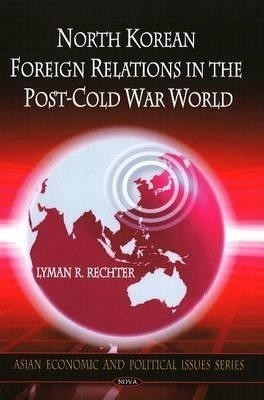North Korean Foreign Relations in the Post-Cold War World(English, Hardcover, Rechter Lyman R)
Quick Overview
Product Price Comparison
The starting premise of this book is that for all the uniqueness of the regime and its putative political autonomy, post-Kim Il Sung North Korea has been subject to the same external pressures and dynamics that are inherent in an increasingly interdependent and interactive world. The foreign relations that define the place of North Korea in the international community today are the result of the trajectories that Pyongyang has chosen to take -- or was forced to take -- given its national interests and politics. In addition, the choices of the North Korean state are constrained by the international environment in which they interact, given its location at the centre of Northeast Asian geopolitics in which the interests of the Big Four (China, Russia, Japan, and the United States) inevitably compete, clash, mesh, coincide, etc., as those nations pursue their course in the region. North Korea per se is seldom of great importance to any of the Big Four, but its significance is closely tied to and shaped by the overall foreign policy goals of each of the Big Four Plus One (South Korea). Thus North Korea is seen merely as part of the problem or part of the solution for Northeast Asia.


